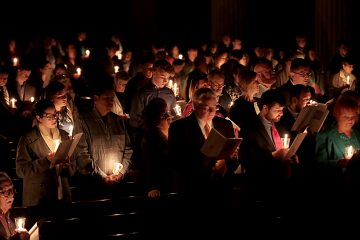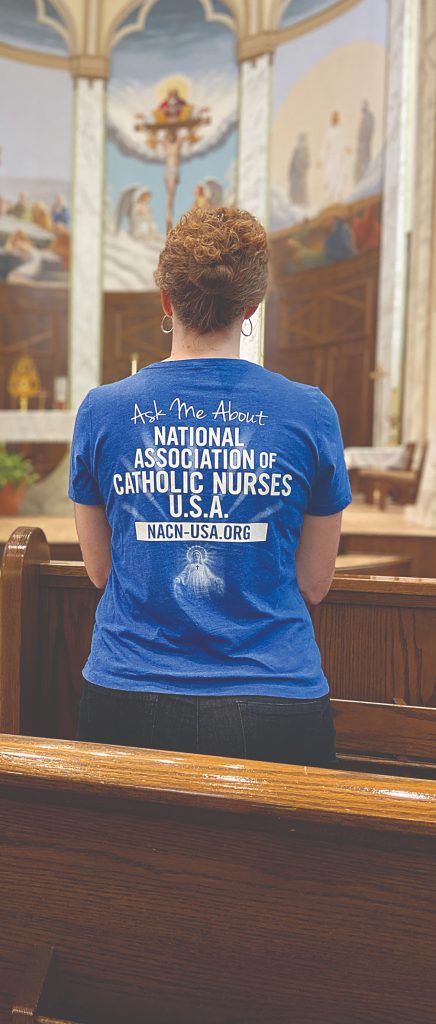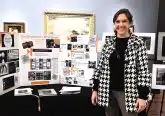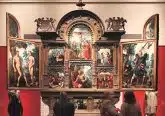The Art of Nursing: Catholic Nurses Create Network of Support
Nursing is not only a complicated science, it is a magnificent art. In addition to employing years of scientific training and study, frontline healthcare professionals must also become masters of emotional intelligence. There’s a subtle, yet indistinguishable beauty that emerges when the practice of human empathy, compassion and science combine.
The role of a Catholic nurse is even more crucial. We live in an age where the sanctity of human life is on a steady decline. Nurses often find themselves in situations where their moral beliefs are challenged. Abortion, euthanasia and the dilution of prayer can leave many healthcare professionals feeling alone against a mountain of unethical opposition.
Janet Munday knows that feeling well. “When I joined the National Catholic Nurses Association (NCNA) in 2014, I was working as an operating room nurse. I had a difficult time finding a supportive, professional group that aligned with my pro-life stance.”
Munday is now the communications chair for the organization.
She is also employed by Wapakoneta schools as a substitute nurse. Since joining NCNA, she has been exposed to people who have strengthened her faith. “Christ has become very tangible for me in the children and staff I care for as a school nurse. I believe that growing deeper in my Catholic faith will not only make me a better disciple, but also a better nurse so as to see Christ in each person I meet.”
The history of NCNA dates back to 1909, when the Guild of St. Radegone for Nurses formed in Boston. Today there are councils in 10 states, including Ohio. Although the archbishop granted permission to create a council within the Archdiocese of Cincinnati, it has not yet formed. Munday hopes her testimony can encourage other nurses to consider joining.
“I’ve met a tremendous cadre of Catholic nurses throughout the U.S. My favorite way to meet nurses is at local council meetings. I’ve recently attended Mass and meetings in Columbus, Cleveland, Kalamazoo and Lansing. These local councils are made up of superstar nurses who are on fire for their faith because of their love and devotion to our Lord,” she said.
Aside from meetings, there are also opportunities for Catholic nurses to call, text and email other members for support, inspiration and to form bonds with nurses throughout the diocese, nation and world. Additionally, the NCNA keeps members informed.
“I’ve grown in understanding of Christ’s love for me through interactions with members,” said Munday, “As the communications chair, I sort through emails that come to the organization from nurses. Many are struggling, hopeless and even want to leave the profession. That’s when the passion within me is ignited and I use Catholic teaching to support and encourage them to stay focused on their calling.”
Munday also said since joining the organization she has developed a more dedicated prayer life. She credits starting each day with a morning offering and prayer to St. Michael to calming the constant chaos that can overwhelm even the most experienced nurse.
“I’m in awe of Catholic nurses who have experienced the presence of saints in the chaos of the emergency room or oncology unit; anywhere patients and families are in desperate need of spiritual care. If we support strong Catholic nurses in our communities, we cultivate a strong Christian structure that rises above the chaos and evangelizes the sacred beauty of life,” she said.
For more information about the National Catholic Nurses Association, www.nacn-usa.org.
This article appeared in the February 2021 edition of The Catholic Telegraph Magazine. For your complimentary subscription, click here.














